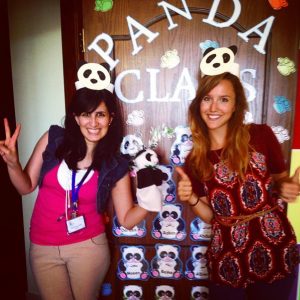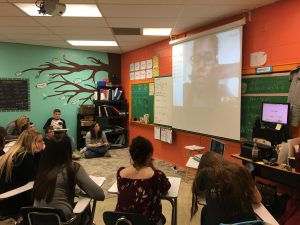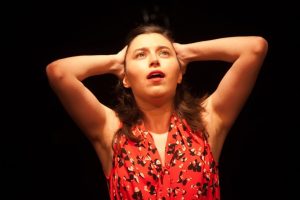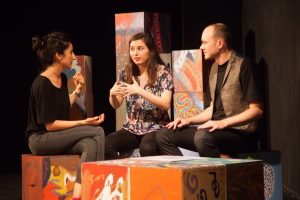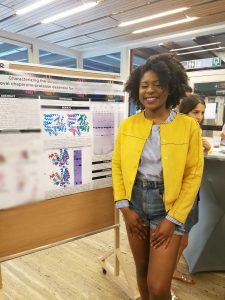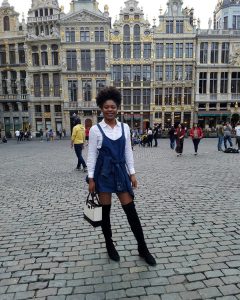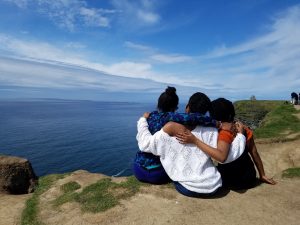Tanya Wacholz was a 2012 Fulbright English Teaching Assistant to Germany
Some experiences change the trajectory of your life forever. For Tanya Wacholz, that experience was a trip to China to visit the sister school of her Minnesota high school. “At the time, I didn’t know anyone who traveled abroad or lived in other countries,” she recalls, “and there I was in Tianjin and Beijing, meeting people whose cultures were so different and exciting.” Later, in college at the University of Minnesota, Tanya became interested in German and spent a semester in Freiburg, Germany, studying post-war history and German colonialism. After graduation, she moved back to Germany, this time to Berlin, in order to improve her German language skills. Considering a career in education and looking to gain experience, she applied for and received a Fulbright English Teaching Assistantship to help 12th- and 13th-grade students in Birkenwerder, Germany, prepare for the Abitur, their all-important cumulative exams.
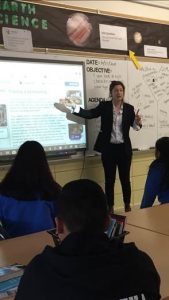 During her time as a Fulbright ETA, Tanya volunteered for Reach the World, a nonprofit organization offering virtual exchanges. She shared her experiences abroad with Keith Pitchford’s middle school students in Hope Mills, North Carolina. “I wanted to help my present and future students on both sides of the Atlantic,” she remembers, “and I wanted my experiences abroad to have a trans-national impact.” Keith’s students were studying World War II. Tanya channeled her love of history and documented her experiences at key historical sites around Berlin. She shared engaging stories with Keith’s students vis the Reach the World platform, breathing fresh life into the topic. “The experience taught me a lot about how to get students interested in other cultures and open their minds to new places and experiences.”
During her time as a Fulbright ETA, Tanya volunteered for Reach the World, a nonprofit organization offering virtual exchanges. She shared her experiences abroad with Keith Pitchford’s middle school students in Hope Mills, North Carolina. “I wanted to help my present and future students on both sides of the Atlantic,” she remembers, “and I wanted my experiences abroad to have a trans-national impact.” Keith’s students were studying World War II. Tanya channeled her love of history and documented her experiences at key historical sites around Berlin. She shared engaging stories with Keith’s students vis the Reach the World platform, breathing fresh life into the topic. “The experience taught me a lot about how to get students interested in other cultures and open their minds to new places and experiences.”
Following her Fulbright ETA, Tanya returned to Minnesota and taught through Teach For America in the Minneapolis area. Says Tanya, “I came home with the same mission that I had when I started my Fulbright experience–to become a teacher. I felt prepared to take on a new challenge. I felt ready to run my own classroom, and I knew what I wanted my classroom to feel like. I knew TFA was going to be a challenge, but I was prepared.” Through TFA, Tanya earned her Master’s degree and championed equity for all students in her classrooms.
To that end, and due to a partnership between Reach the World and Teach for America, she became a Reach the World teacher herself, welcoming the next wave of Fulbright scholars into her classroom through their own virtual exchanges. “My students are so engaged when their traveler is on the screen right in front of them, sharing their experiences in a new place,” she says. Tanya’s 8th-grade English Language Learner students at Hiawatha College Prep often have international backgrounds themselves, so they’re especially interested in what languages their Reach the World traveler speaks. They are also very interested in globalization and issues surrounding refugees in other parts of the world, and together with co-teacher Ryane Hardy, Tanya enriches classroom curriculum with the travelers’ global perspectives.
“They ask so many questions,” Tanya says. “The Fulbright travelers we connect with through Reach the World are people my students really want to know and learn from. My students walk away from their virtual exchanges feeling like they’ve shared their international backgrounds and gotten so much in return. It plants a seed that motivated and curious students can go on to college and be in control of their own global experiences.”

